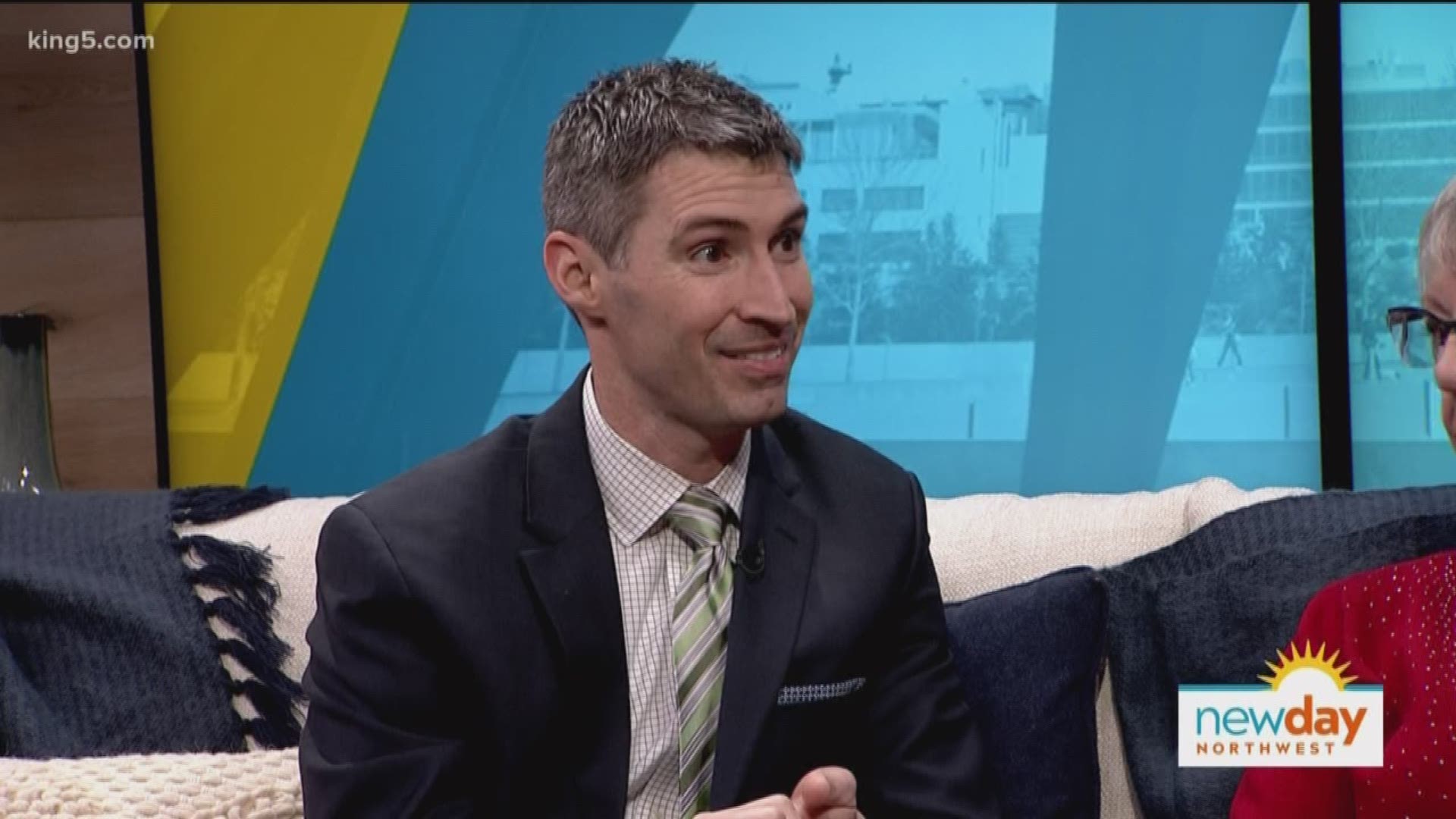SEATTLE — According to the American Cancer Society, colorectal cancer is the third most common cancer in men and women.
Patient Donna Hamlet routinely went in for colonoscopies due to a history of polyps. She would have a screening around every five years to keep up with the issue, which is how doctors originally found a polyp containing cancer, which led them to refer her to Virginia Mason.
"We think that cancers start as polyps, these growths on the lining of the colon," said Virginia Mason's Dr. Vlad Simianu, "She had a very good gastroenterologist who was concerned about how this polyp looked."
Dr. Simianu and Hamlet originally made a plan to try and remove the polyp through a colonoscopy but found her gastroenterologist was correct, and she would need surgery to remove the cancerous polyp.
Hamlet underwent a minimally invasive laparoscopic surgery at Virginia Mason to remove that section of her colon and any of the lymph nodes that may have been infected by the polyp.
"Of course you're scared but it had to be done, and [Dr. Simianu] has such a wonderful personality he helped relax [me] and makes it sound like it's really easy," Hamlet said, "And in the end it was."
Hamlet went in for the surgery on a Monday and went home on Wednesday afternoon.
Dr. Simianu sees Hamlet as a perfect example of how colorectal cancer is highly treatable if people go in for screenings.
"When we did find [a polyp] that did have cancer in it, it was the earliest stage of cancer, and she got a treatment that's state of the art," Dr. Simianu said. "All doctors would say if this is caught early the chance of it coming back is extremely low."
Hamlet is grateful that she was able to undergo such a quick procedure to address her colorectal cancer.
"Because they caught it early, there was no chemo or radiation," Hamlet said.
Hamlet goes in for yearly colonoscopies to make sure she stays cancer free.
Certain risk and lifestyle factors make some people more likely to be diagnosed with colorectal cancer than others.
"There are some that you can modify and there are some that you can't modify," Dr. Simianu said.
Smoking, being overweight, diets high in red meat, and not exercising often can increase your risk of cancer.
Colon cancer is also more likely in older individuals. Those with a family history of colon cancer should start cancer screenings five to ten years earlier than their closest relative in age with colon cancer. Inflammatory bowel disease and diabetes are also associated with colon cancer.
Dr. Simianu said colon cancer is also showing up in patients who are younger and younger.
"In people younger than 50 who we're not screening for cancer we're seeing a rise in colon and rectal cancer," Dr. Simianu said, "Part of that might be genetics or our diet, but we are starting to think about screening people younger."
Colonoscopies aren't the only way to screen for colon or rectal cancer, there are a variety of other procedures that patients can undergo.
To learn more about colorectal cancer and how to prevent it, visit Virginia Mason's cancer center website.
This story is sponsored by Virginia Mason. Watch New Day Northwest 11:00 weekdays on KING-TV Ch.5 or streaming live on KING5.com. Connect with New Day via Facebook, Twitter, Instagram.

